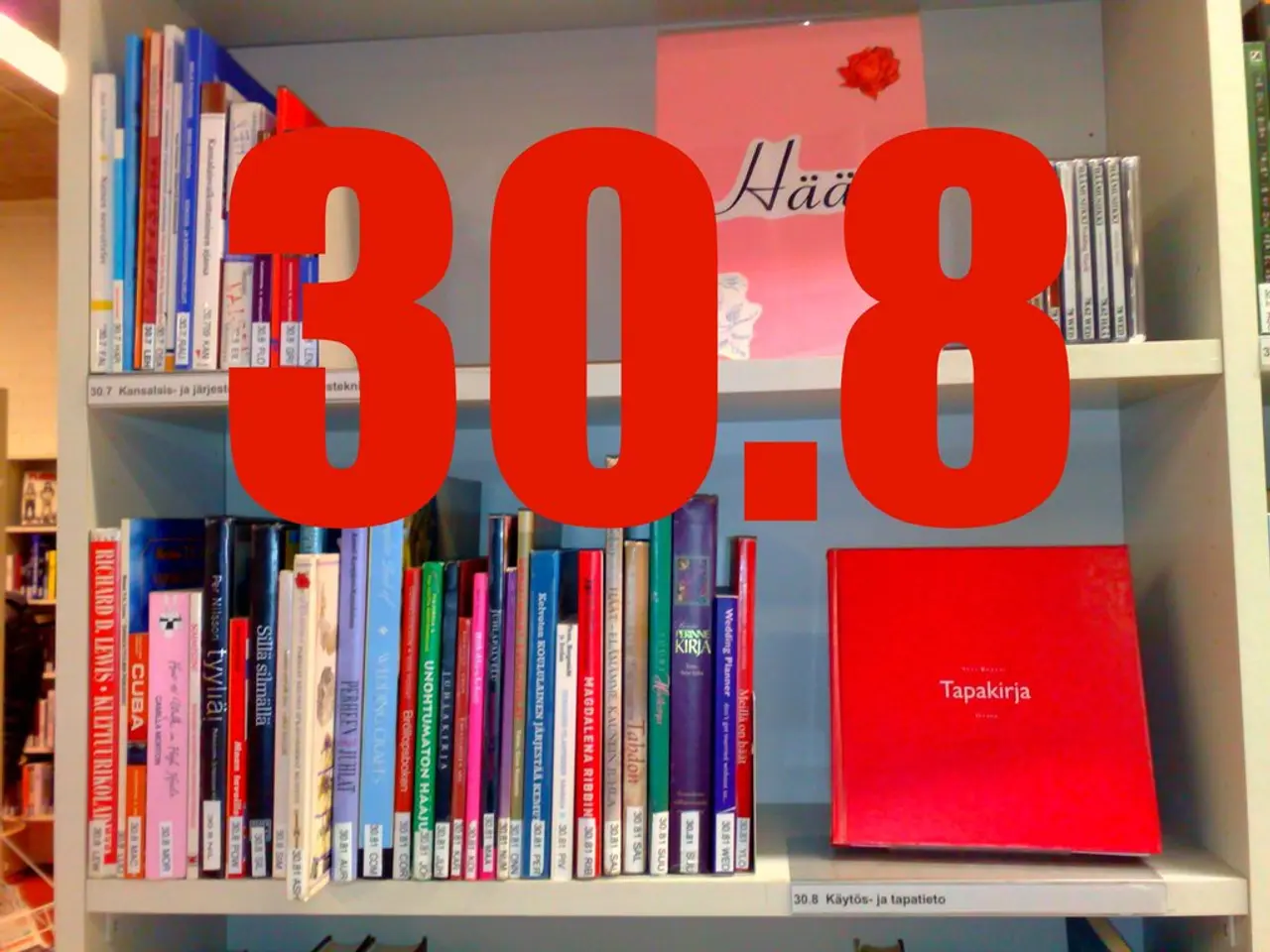Study findings were made public in Mathematical Circles during the stated year.
The University of Paderborn is hosting an exciting online workshop on the fascinating topic of Catalan numbers. Here's what you need to know:
Workshop Details
The online workshop will take place on Saturday, 23rd January 2026, starting at 10:00 AM. The registration link can be found on the Paderborn Math Circle website. Registration for the event is free and open to all.
The video conference will commence at 9:45 AM, and the university uses a campus license of Zoom for the video conference. The access details for the Zoom meeting will be sent via email in regular intervals, usually on the Wednesday before the workshop.
Location and Materials
Though the workshop is online, the physical location of the University of Paderborn is Warburger Straße 100, 33098 Paderborn. The materials for the online workshop will also be sent via email in regular intervals, usually on the Wednesday before the Saturday term.
Exploring Catalan Numbers
Catalan numbers are a sequence of integers that appear in various combinatorial structures. Here are five classical problem settings where Catalan numbers appear and how they relate to each other:
- Balanced Parentheses: This problem involves counting the number of ways to correctly match n pairs of parentheses.
- Binary Search Trees: This problem counts the number of distinct BSTs with n keys.
- Full Binary Trees: This problem counts the number of full binary trees with n+1 leaves.
- Non-intersecting Chords on a Circle: This problem counts the number of ways to draw n chords among 2n points without intersections on a circle.
- Dyck Paths (Lattice Paths): This problem counts the number of monotonic lattice paths from (0,0) to (n,n) not crossing the diagonal line y = x.
These problems are all counted by the nth Catalan number, (C_n), given by the formula:
[ C_n = \frac{1}{n+1} \binom{2n}{n} = \frac{(2n)!}{(n+1)! n!} ]
These problems are combinatorially equivalent because there exist bijections (one-to-one correspondences) between the structures counted in each setting. For example, a Dyck path can be uniquely mapped to a correctly matched parentheses expression by viewing upward steps as '(' and downward steps as ')'; binary trees map to balanced parentheses and chord diagrams, etc.
Registration
Registration for the online workshop is ideal before January 20, 2026, at 11:00 AM via email with the registration form from the website. Don't miss this opportunity to delve into the fascinating world of Catalan numbers!
| Problem Setting | Description | |----------------------------------------------------|------------------------------------------------| | Balanced Parentheses | Number of ways to correctly match n pairs of parentheses | | Binary Search Trees | Number of distinct BSTs with n keys | | Full Binary Trees | Full binary trees with n+1 leaves | | Non-intersecting Chords on Circle | Ways to draw n chords among 2n points without intersections | | Dyck Paths (Lattice Paths) | Monotonic lattice paths from (0,0) to (n,n) not crossing diagonal |
Their relationship is that they are all counted by the same Catalan number sequence and can be transformed into each other via bijections in combinatorics.
Participants who are interested in education-and-self-development, particularly in the field of online-learning, may find a beneficial opportunity in the upcoming online workshop on Catalan numbers. The workshop, hosted by the University of Paderborn, provides an excellent platform for learning more about these fascinating numbers and understanding their role in various combinatorial structures.




